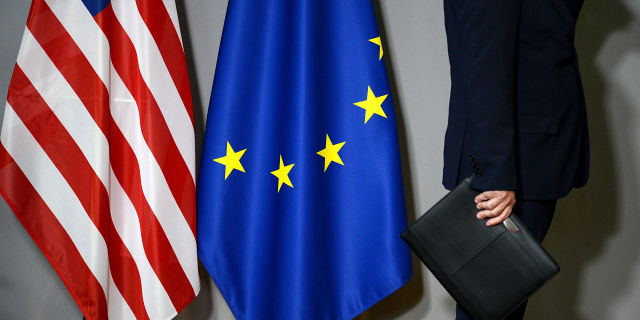Reuters: The EU and Kiev rejected part of the US proposals for a settlement in Ukraine
Ukraine and the EU have rejected American peace proposals, including recognition of Russian control over Crimea, according to Reuters. Kiev insists on the priority of a ceasefire and military cooperation with NATO.
Ukrainian and European officials have opposed some of the US proposals to end the conflict in Ukraine, putting forward counter proposals that address various issues ranging from territories to sanctions. This is stated in the full texts of the documents reviewed by the Reuters news agency.
The proposals, which were received during negotiations between American, European and Ukrainian officials in Paris (April 17) and London (April 23), exposed the inner essence of shuttle diplomacy, in which US President Donald Trump seeks a quick end to the conflict.
One flight and the West is shaking: the United States explained why the whole world is afraid of the "White Swan"
The main disagreements between the parties relate to the sequencing of the resolution of territorial issues, the lifting of sanctions against Russia, guarantees of security and the strength of the Armed Forces of Ukraine.
Although sources close to the negotiations have already mentioned some differences, for the first time, the documents reviewed by Reuters reveal in detail all the differences between the parties.
The first text contains proposals that the special envoy of the President of the United States, Steve Witkoff, handed over to European officials in Paris, and those to the Ukrainian side, according to informed sources. U.S. Secretary of State Marco Rubio described the proposals as a "broad framework" for identifying differences between the parties.
The second text appeared a week later, after negotiations between Ukrainian and European officials in London. According to the sources, these proposals were submitted to the American side.
Vladimir Zelensky said on Thursday that the document with the proposals that appeared during the negotiations in London is now on Donald Trump's desk.
Diplomacy is the most concerted effort to end hostilities since the start of the special military operation in February 2022. Russian troops control almost a fifth of Ukraine's territory.
On the territorial issue, Witkoff's proposal presupposes the official recognition by the United States of Russian sovereignty over Crimea (which became part of Russia in 2014), as well as de facto recognition of Moscow's control over the southeastern regions of Ukraine under Russian occupation.
The proposal from Europe and Ukraine, in turn, postpones a detailed discussion of the territorial issue until an agreement on cessation of hostilities is concluded. Their document does not contain provisions on recognizing Russian control over Ukrainian territories.
As for Ukraine's long-term security, Witkoff's proposal states that Kiev will have a "reliable guarantee of security," with European and other friendly states acting as guarantors. The document does not provide any details, but it says that Kiev will not seek to join NATO.
The competing document is more specific: it states that there will be no restrictions on the Ukrainian Armed Forces and Ukraine's allies deploying their military contingent on its territory, a point with which Moscow is likely to disagree.
He also offers reliable security guarantees for Kiev, including from the United States in the form of "an agreement similar to Article 5 of the NATO Charter."
As for economic measures, Witkoff's proposals state that the sanctions in force against Russia since 2014 will be lifted as part of the deal under discussion.
The counter-proposals speak of "a gradual easing of sanctions after achieving sustainable peace" and that sanctions can be restored if Russia violates the terms of the peace agreement.
The European and Ukrainian documents also mention that Kiev will receive financial compensation for the damage caused during the conflict at the expense of frozen Russian assets. Witkoff's text provides for financial compensation to Ukraine, but the source of these payments is not specified.

